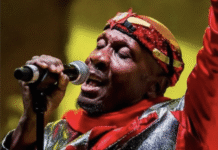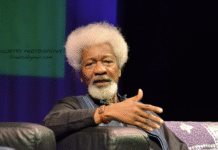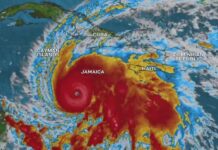
It has long since been understood that knowledge is power. Women and other subjugated voices have recognized that those who control the world are those who define the world—and thus define not simply what counts as knowledge—that is the content of knowledge, but they also define the production of knowledge—that is what sources and means are considered resources for knowing.
Just as Michel Foucault has made this clear in his deconstruction of discursive power, so have womanists and black feminists like Patricia Hill Collins who have called for an “epistemology of knowledge, where the meaning of knowledge itself, in terms of content and production, is re-examined and re-defined. For it is undeniable that the what and ways of knowing peculiar to marginalized groups and classes of people are rarely considered knowledge—perhaps “wisdom,” “folkways,” “customs,” “superstitions,” or “women’s intuition,” but not knowledge, not something worth knowing and thus not something worth teaching. Why am I talking about all of this on today?
Each day I’m in the classroom, it never ceases to amaze me simply what students don’t know, but also what they apparently don’t need to know to be considered knowledgeable. How many of you have heard of Jane Austin, Charlotte Bronte, George Eliot, Mary Shelley, Emily Dickinson, and Louisa May Alcott? All hands go up.
How many of you have heard of Nella Larson, Ann Plato, Frances Ellen Watkins Harper, Elizabeth Keckley or Anne Petry? A tentative one or two hands go up.
How many of you have heard of the Women’s Suffrage Movement, Elizabeth Cady Stanton and Susan B. Anthony? All hands go up?
How many of your have heard of the Negro Women’s Club Movement, Anna Julia Cooper and Maria Stewart? No hands go up.
If knowledge is power, then not knowing is privilege. Defining what one is privileged not to know, is just as important to understanding the dynamics of power as defining what one needs to know. For it is not simply a matter of lack, it is a matter of absence.
Certain “cognitions” are completely absent from our discourse of knowledge, that is, not even considered to be a part of the terrain of possibility for what should at some point be known. It is not about “subjugation,” it is about “negation”; it is a negation of the very existence of “bodies” of knowledge. Certain bodies and experiences are not regarded as being knowledge producers and so they are more than subjugated — they are negated even from consideration of thought—and so they are virtually invisible to our knowing and too often in our teaching.
Why am I talking about all of this now? This is Women’s History Month and we’re just out of Black History Month and there are no two months that make me more aware of the negated bodies of knowledge than these two months. Even as certain “heroines and heroes” are lifted up to a place of awareness, African American bodies of knowledge—that is ways of knowings/knowledge forms continue to be negated. The way in which black bodies view the world and, the ways in which black bodies form knowledge are still not taken seriously. It does not altar or challenge the dominant understandings of knowledge and knowledge formation.
Black stories are grafted onto dominant cultural knowledge forms; they do not change those forms. Consequently, perspectives on realities, perceptions of truths and worldviews are not challenged or changed. The privilege of not knowing virtually remains intact. The status quo of knowledge is unchallenged.
Why am I talking about all of this on today? Because knowledge changes the way we live in the world. It shapes the way we see ourselves, each other and god. It fosters our relationships, human and divine. It has the capacity to richly complicate our realities and to recognize that there is more than one way of seeing, being and knowing. It compels never-ending conversations with different bodies of knowers. If we are indeed going to change this world and disrupt the way people are marginalized, mistreated and disregarded, and then epistemological privilege must be must be named, challenged and dismantled.
If knowledge is power, then not knowing is privilege and this phenomena needs to be reconciled.
This article was written by Dr. Kelly Brown Douglas, professor of philosophy and religion at Goucher College in Baltimore, MD. Douglas taught theology at the Divinity School of Howard University in Washington, D.C. for 14 years. She became the first black woman to be ordained as an Episcopal priest in the Southern Ohio Diocese. At the time, she was one of only five black female Episcopal priests nationwide. Douglas’ most recent book is Black Bodies and the Church: A Blues Slant.
Like The Burton Wire on Facebook. Follow us on Twitter @TheBurtonWire.








